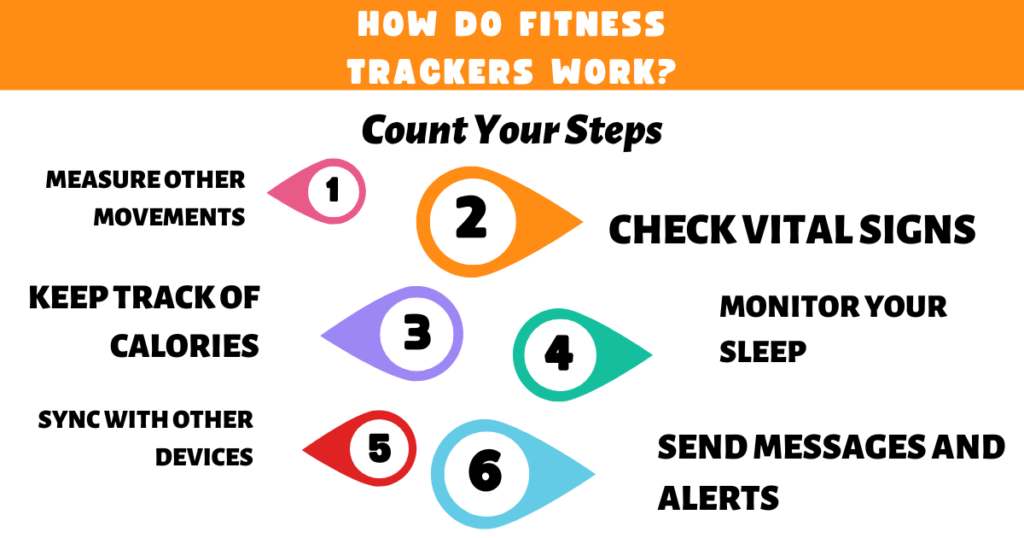Hello, everyone! Today, we’re diving into the exciting world of fitness trackers. These nifty devices help us stay healthy and active by keeping track of our movements, heartbeats, and sleep patterns. They’re like friendly assistants that cheer us on as we move and groove through our day!
Introduction: Exploring the World of Fitness Trackers
Fitness trackers have become ubiquitous companions for those striving for better health. They come in various shapes and sizes, from sleek wristbands to advanced smartwatches. These devices are designed to monitor our physical activities, heart rates, and even sleep patterns. In this article, we’ll delve deeper into the functionalities and benefits of these tech-savvy health companions.
What Is a Fitness Tracker and How Does It Work?

A fitness tracker is a device that monitors your physical activity, such as steps taken, heart rate, and sleep patterns. It works by using sensors to track your movements and then provides you with data to help you stay active and healthy.
How Do Fitness Trackers Work?

Fitness trackers work by using sensors to detect and record your movements, such as walking, running, or cycling. They then analyze this data to provide insights into your activity levels, calories burned, sleep quality, and more. Some fitness trackers also offer additional features like GPS tracking, heart rate monitoring, and smartphone connectivity for a comprehensive health tracking experience.
Count Your Steps
Fitness trackers can accurately count your steps throughout the day, encouraging you to meet daily activity goals and stay active.
Measure Other Movements
Beyond steps, fitness trackers can measure various movements like distance traveled, active minutes, and intensity of physical activities.
Check Vital Signs
Many fitness trackers can check vital signs such as heart rate, blood pressure, and oxygen saturation, providing valuable health insights.
Keep Track of Calories
Fitness trackers estimate calories burned based on your activity levels, helping you manage weight and maintain a healthy lifestyle.
Monitor Your Sleep
Fitness trackers monitor sleep duration, quality, and patterns, offering insights into your sleep habits and helping you improve sleep hygiene.
Sync With Other Devices
Fitness trackers can sync data with smartphones or computers, allowing you to view and analyze your health metrics over time.
Send Messages and Alerts
Some fitness trackers offer features like notifications for calls, messages, and reminders, keeping you connected and informed throughout the day.
How to Save Money on Health Insurance by Wearing a Fitness Tracker Watch
Many insurance companies offer discounts or incentives for wearing a fitness tracker watch and maintaining an active lifestyle. By tracking your fitness activities and sharing data with your insurer, you may qualify for reduced premiums or other health-related benefits.
Are Fitness Trackers HSA and FSA Eligible?

Understanding Health Savings
One common question among health-conscious individuals is whether fitness trackers qualify for Health Savings Accounts (HSA) and Flexible Spending Accounts (FSA). These financial tools offer tax advantages for medical expenses, but their eligibility criteria can be complex. We’ll demystify this topic and explore how leveraging these accounts can make adopting fitness technology more affordable.
How Accurate Are Fitness Trackers?

The Science Behind the Numbers
The accuracy of fitness trackers is a crucial aspect that influences their reliability. These devices use a combination of sensors, algorithms, and machine learning to track activities such as steps taken, calories burned, and heart rate. We’ll unravel the science behind their accuracy and discuss factors that can affect their performance, empowering readers to make informed decisions when choosing a fitness tracker.
Assessing the Value of Fitness Trackers:

More Than Just Numbers
Beyond their role as data collectors, fitness trackers offer immense value in promoting healthy habits. They serve as constant reminders to stay active, hydrated, and well-rested. Moreover, they can be tailored to individual goals, making fitness more personalized and enjoyable. We’ll explore how these devices contribute to holistic well-being across different age groups and lifestyles.
Conclusion:
Celebrating Healthy Habits

In conclusion, fitness trackers play a significant role in modern wellness journeys. They blend technology with health consciousness, empowering users to take charge of their fitness goals. As we celebrate the positive impact of these devices, let’s continue embracing healthy habits and making strides towards a vibrant and active lifestyle.
FAQs:
Do fitness trackers work for all types of physical activities?
Yes, fitness trackers are versatile and can track various activities like walking, running, cycling, and more.
Can fitness trackers accurately measure sleep quality?
Fitness trackers can provide insights into sleep duration and patterns, including deep and light sleep cycles.
Are fitness trackers waterproof for swimming activities?
Some fitness trackers are waterproof and suitable for swimming, but it’s essential to check the device’s specifications for water resistance.
Do fitness trackers require a smartphone for full functionality?
While some fitness trackers offer enhanced features when connected to a smartphone, many models can function independently, tracking essential health metrics without the need for a phone.
How long do fitness tracker batteries typically last?
Battery life varies depending on the model and usage. Generally, fitness tracker batteries can last anywhere from a few days to several weeks on a single charge, with newer models offering longer battery life.
Does Health Insurance Cover a Fitness Tracker Watch?
Health insurance coverage for a fitness tracker watch may vary depending on your insurance plan and provider. Some insurers offer coverage or reimbursement for fitness-related expenses, including wearable devices like fitness trackers.
Do I Need a Fitness Tracker Watch?
While not essential, a fitness tracker watch can be a valuable tool for tracking your health and fitness goals. It provides insights into your activity levels, encourages you to stay active, and may qualify you for insurance discounts.
Does a Fitness Tracker Watch Help with Weight Loss?
A fitness tracker watch can support weight loss efforts by monitoring calorie expenditure, tracking physical activity, and providing motivation to achieve fitness goals. However, consistent exercise, healthy eating habits, and lifestyle changes are essential for sustainable weight loss.
Can a Fitness Tracker Watch Track Cholesterol?
Most fitness tracker watches focus on tracking physical activity, heart rate, and sleep patterns rather than measuring cholesterol levels directly. Consult with your healthcare provider for accurate cholesterol monitoring and management.
Can a Fitness Tracker Watch Pick Up Heart Palpitations?
Some advanced fitness tracker watches with heart rate monitoring capabilities may detect irregularities in heart rhythm, including heart palpitations. However, it’s crucial to consult with a healthcare professional for proper evaluation and diagnosis of heart-related concerns.
Fitness Trackers and Health Insurance Savings
Wearing a fitness tracker and sharing data with your health insurance provider can lead to potential savings on premiums or incentives for maintaining an active lifestyle. Check with your insurer for specific programs and benefits related to fitness trackers and health insurance savings.
